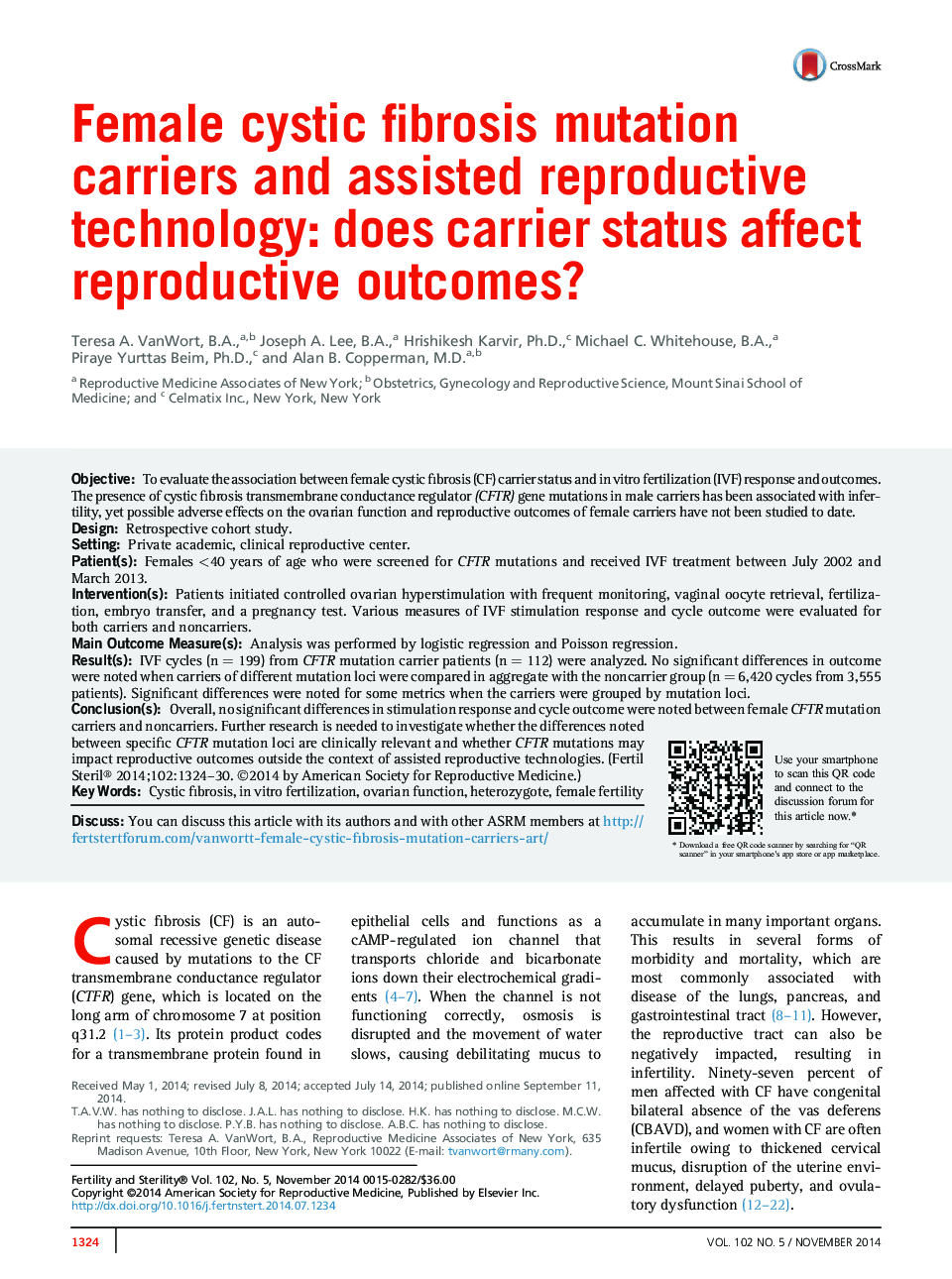| کد مقاله | کد نشریه | سال انتشار | مقاله انگلیسی | نسخه تمام متن |
|---|---|---|---|---|
| 6178763 | 1253285 | 2014 | 7 صفحه PDF | دانلود رایگان |
ObjectiveTo evaluate the association between female cystic fibrosis (CF) carrier status and in vitro fertilization (IVF) response and outcomes. The presence of cystic fibrosis transmembrane conductance regulator (CFTR) gene mutations in male carriers has been associated with infertility, yet possible adverse effects on the ovarian function and reproductive outcomes of female carriers have not been studied to date.DesignRetrospective cohort study.SettingPrivate academic, clinical reproductive center.Patient(s)Females <40 years of age who were screened for CFTR mutations and received IVF treatment between July 2002 and March 2013.Intervention(s)Patients initiated controlled ovarian hyperstimulation with frequent monitoring, vaginal oocyte retrieval, fertilization, embryo transfer, and a pregnancy test. Various measures of IVF stimulation response and cycle outcome were evaluated for both carriers and noncarriers.Main Outcome Measure(s)Analysis was performed by logistic regression and Poisson regression.Result(s)IVF cycles (n = 199) from CFTR mutation carrier patients (n = 112) were analyzed. No significant differences in outcome were noted when carriers of different mutation loci were compared in aggregate with the noncarrier group (n = 6,420 cycles from 3,555 patients). Significant differences were noted for some metrics when the carriers were grouped by mutation loci.Conclusion(s)Overall, no significant differences in stimulation response and cycle outcome were noted between female CFTR mutation carriers and noncarriers. Further research is needed to investigate whether the differences noted between specific CFTR mutation loci are clinically relevant and whether CFTR mutations may impact reproductive outcomes outside the context of assisted reproductive technologies.
Journal: Fertility and Sterility - Volume 102, Issue 5, November 2014, Pages 1324-1330
